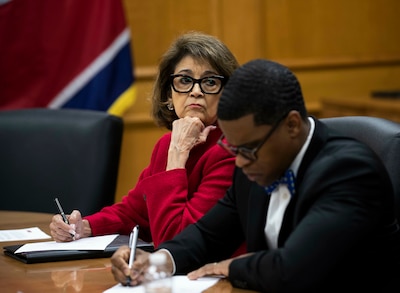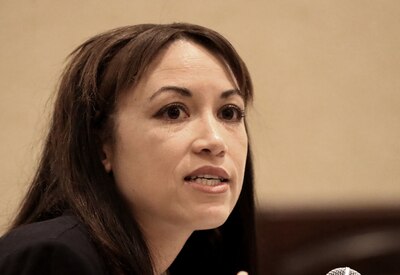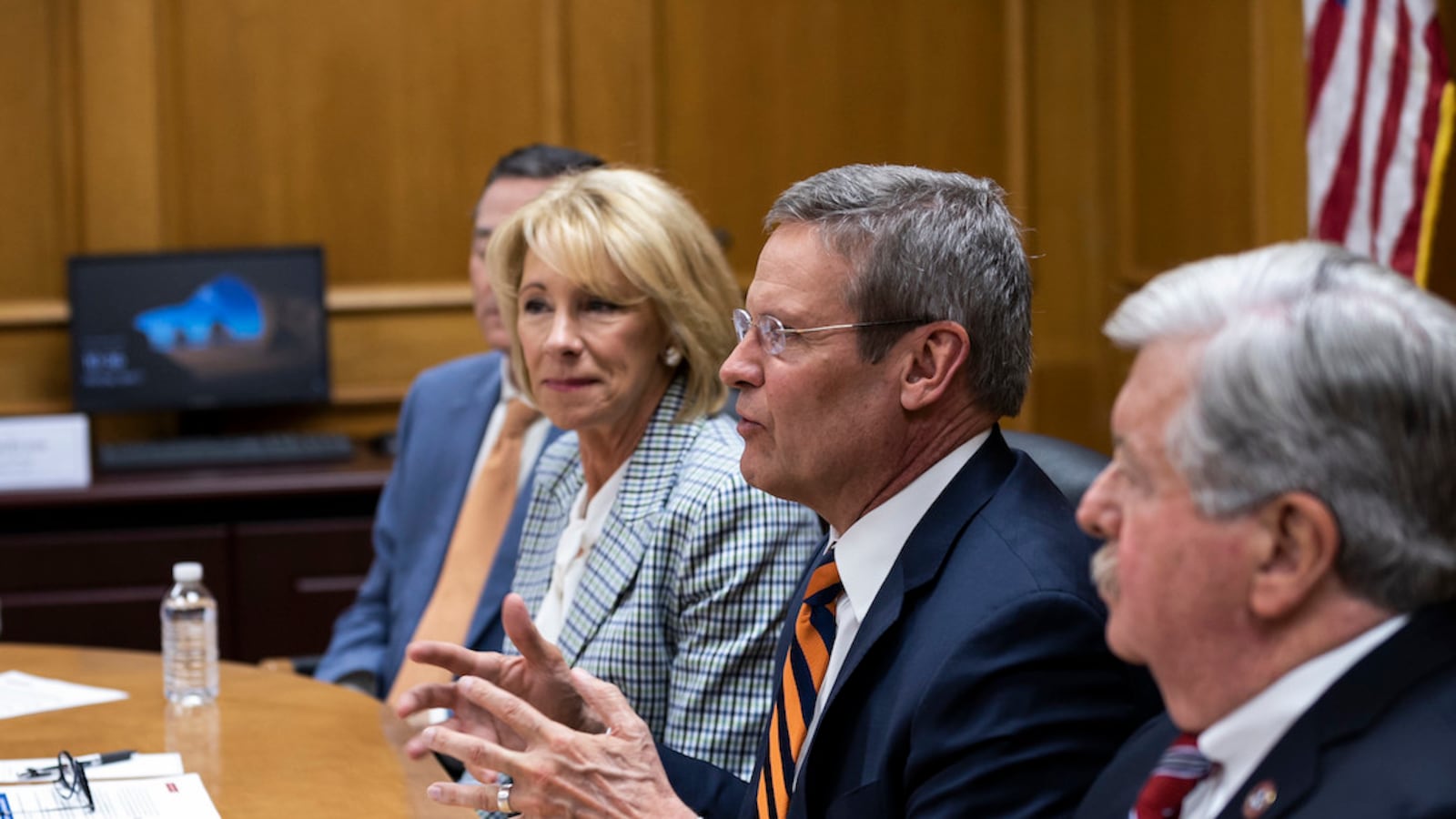Tennessee has fought hard to build testing-based accountability into its public school system. So educators quickly took note when Gov. Bill Lee eased off of that approach with his signature education proposal to give taxpayer money to some families to spend on private education services.
Students receiving education savings accounts — a newer kind of voucher now under consideration by the Tennessee General Assembly — would have to take half as many tests as their counterparts in public schools.
The retreat in accountability for a proposed pilot program even has some of the new Republican governor’s supporters scratching their heads.
“I would think that we would want the recipients to go through the full battery of assessments that students in public schools would receive,” said freshman Rep. Charlie Baum, a Republican from Murfreesboro, of the need to “compare apples to apples” in measuring the program’s success.
His concerns — raised last month in the bill’s very first hearing before a House subcommittee — has not been fully addressed as the measure cleared legislative hurdles. Even so, Baum voted twice for the plan that next week goes before that chamber’s finance committee.
The double standard over testing rankles public school teachers who since 2011 have had to undergo more frequent and rigorous evaluations aligned to student test scores, affecting decisions about their hiring, firing, salary, and tenure. Many teachers already believe that system to be unfair and, if the testing imbalance goes unchecked for a voucher program that’s projected to grow, their frustrations will only fester. Tennessee already is grappling with a decline in the number of candidates entering the teaching profession.
“The state has been blindly devoted to this high-stakes testing system for years, claiming it is the only way to ensure students are learning and teachers are doing their jobs,” said Beth Brown, president of the Tennessee Education Association, the state’s largest teacher organization. “To not require that same accountability for a program that will drain millions of dollars from public education is absurd.”
The move also would run contrary to the state’s blueprint for improving education under its last two governors.
For a decade, Tennessee has worked diligently to use test scores to hold its students, teachers, schools, and districts accountable for results. And with each new batch of academic gains, state leaders have credited those systems as a major reason. Those same officials also stood by Tennessee’s standardized TNReady assessment system during a messy transition to computer-based testing and have dug in their heels on the state’s controversial teacher evaluation model.
For public schools, Lee has said he doesn’t plan to deviate significantly from that blueprint. However, on the campaign trail, he also promised to provide parents with more education choices for their children.
A new plan
When his education savings account proposal launched in the House, it required students to take annual state assessments in math and English language arts if their families receive an annual average of $7,300 in public funds to pay for private school tuition or other private education services. But, unlike students in public schools, they would not be required to test in social studies, science, or civics, or take the ACT college entrance exam.
Some observers expected that the Senate version would up testing requirements because that bill is being shepherded by Sen. Dolores Gresham. As chair of the Senate’s education committee, the Somerville Republican has been fiercely protective of the state’s test-based accountability policies.

But Gresham is also a big fan of “parent choice” in education. When her Senate bill finally debuted this week, it actually walked back testing accountability further by allowing students with education savings accounts to take national assessments in math and English instead of the state tests required in the House bill.
Sen. Raumesh Akbari, the only Democrat serving on Gresham’s committee and one of three lawmakers who voted against the measure, is troubled by the lack of consistency.
“If you’re going to take public dollars to attend a private or homeschool, you need to be held to the same standards that public school students and public schools are held to when they take public dollars,” said the senator from Memphis.
Others, like Senate Majority Leader Jack Johnson, aren’t sold that a full battery of state assessments is necessary.
“Some would argue that we’re requiring too many tests in existing schools, and we’re having that conversation as well,” said the Franklin Republican.
Voucher varieties
Most states with voucher programs impose regulations on private schools that accept public funds, but those guidelines vary widely, including how the schools should be held accountable for helping students learn.
Many voucher advocates — including the American Federation for Children, the pro-voucher advocacy group headed by U.S. Secretary of Education Betsy DeVos before she joined the Trump administration — say they’re open to seeing students who use vouchers take tests, but don’t push for individual schools’ scores to be provided to anyone but parents and academic researchers. That’s the course that North Carolina took and that the federal government charted for the Washington, D.C. voucher program.
Other states have chosen to have voucher students take state exams to allow for comparisons between private and public schools. Some of them even penalize schools when their voucher students score low.
Indiana, which has one of the nation’s largest voucher programs, goes a step further: The state not only requires students who are receiving vouchers to take state tests, it also requires private schools to test students who are not receiving state aid. Those test results, and other measures such as graduation rates, are used to assess private schools with the same yardstick as charter and traditional public schools — A-F grades from the state’s education department. And when schools have chronically low grades, Indiana sanctions them by reducing their access to vouchers.
Tennessee’s education savings account proposal falls far short of that bar, but appears to be on solid footing for accountability purposes, according to Michael Petrilli, president of the pro-voucher Thomas B. Fordham Institute.
“There is reasonable debate about how much testing might be too much and how to keep the burden reasonable for private schools that volunteer to participate,” Petrilli said. “If only the most desperate private schools sign on, that’s a problem.”
That concern was a factor two years ago when Tennessee voucher legislation stalled over whether private schools that accept the funds would have to follow the state’s testing requirements.
Tracking and transparency
Petrilli said participating private schools should demonstrate that they are producing positive academic results in order to continue in the program. That means administering regular assessments, with transparent reporting of school-level results.
“The public has a right to know that these dollars are being well spent and that kids are being well served,” Petrilli said.

Under Lee’s proposal, it’s uncertain whether an annual voucher report produced by Tennessee’s education department would include school-by-school results for students going to private schools paid for with taxpayer dollars. As currently written, neither bill specifies that level of reporting.
Even so, proponents of the governor’s plan argue that testing isn’t the only way to measure success. They say parents ultimately would be the judge of whether their children are learning in the private schools or with the private education services they choose.
“The accountability is, if you don’t deliver, the child leaves, the school shuts down,” said Rep. Bill Dunn, the Knoxville Republican who is carrying Lee’s education savings account proposal in the House. “Public schools that don’t deliver don’t go out of business; they just ask for more money.”

